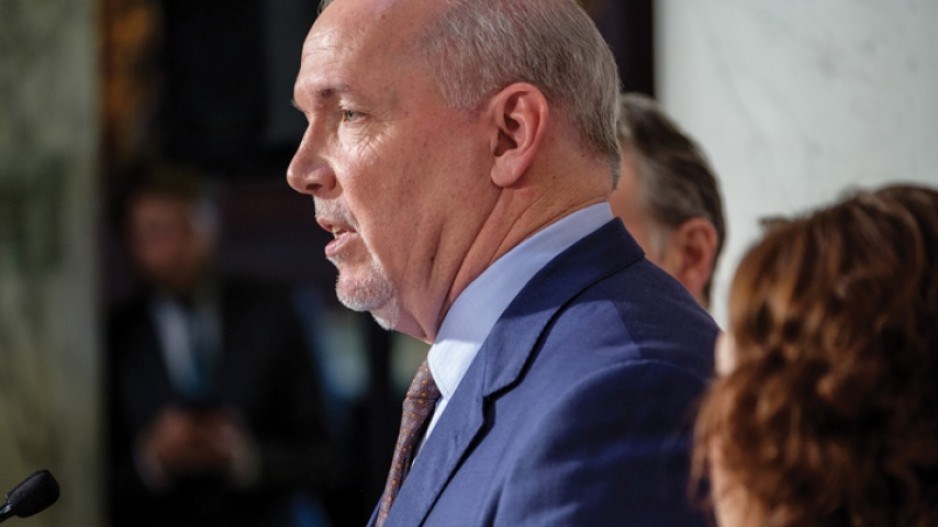What happened: B.C. Premier John Horgan says he is disappointed with the federal government's decision on Trans Mountain.
Why it matters: B.C. remains opposed to the project, and could join a potential legal action. The province is currently prioritizing environmental concerns and its reference case on jurisdiction in environmental matters.
B.C. Premier John Horgan told reporters Tuesday that he was disappointed with the federal government’s decision to proceed with its controversial Trans Mountain pipeline expansion project.
“It does ring somewhat hollow that on one day you can claim that there’s an emergency and on another day you can accelerate the increase of emissions in Canada,” he said, referencing a motion passed by Ottawa that declares a national climate emergency in Canada.
Horgan reiterated what he says his government has maintained all along: that a final decision on the project was the jurisdiction of the federal government, but that the project was not in B.C.’s best interest. He also told reporters that it will be up to individual First Nations to decide whether they choose to pursue additional legal action.
He did not say whether the province might join onto such an action. That would depend on the substance of the case, he said. “If it’s in the interest of British Columbia to join them, then we will.”
He added that the province intends to continue with its reference case regarding governmental jurisdiction on environmental issues.
B.C. will “proceed in an appropriate manner” if all permits tied to the project were legally sought, he said, and in line with National Energy Board and federal government conditions.
“Should there be permits that don’t fit into that category, we have every right and responsibility to ensure that we’re protecting the public interest and we’ll continue to do that.”
Horgan spoke alongside Minister of Environment and Climate Change Strategy George Heyman, who firmly stated that B.C. will maintain committed to protecting its environment.
“We know that British Columbians continue to be deeply concerned over a seven fold increase in tanker traffic in the Salish Sea. They are deeply concerned about the consequences of a catastrophic oil spill to our environment, and to the jobs and economic benefits for British Columbians,” he said.
“We will not abandon our responsibility to protect our land and our water. We’ll continue to stand up and defend our environment, our coast and the tens of thousands of jobs that are dependent on them.”
Like Horgan, BC Green Party leader Andrew Weaver questioned the decision to build a pipeline in a state of national climate emergency.
"How can this government declare a climate emergency and yet continue to invest in major expansions of fossil fuel infrastructure that will last 40 to 50 years?” he asked.
“No compelling business case has been made for the expansion, with Kinder Morgan offloading the risk onto the Canadian taxpayer. Proceeding with the Trans Mountain expansion is a reckless use of taxpayer money.”




